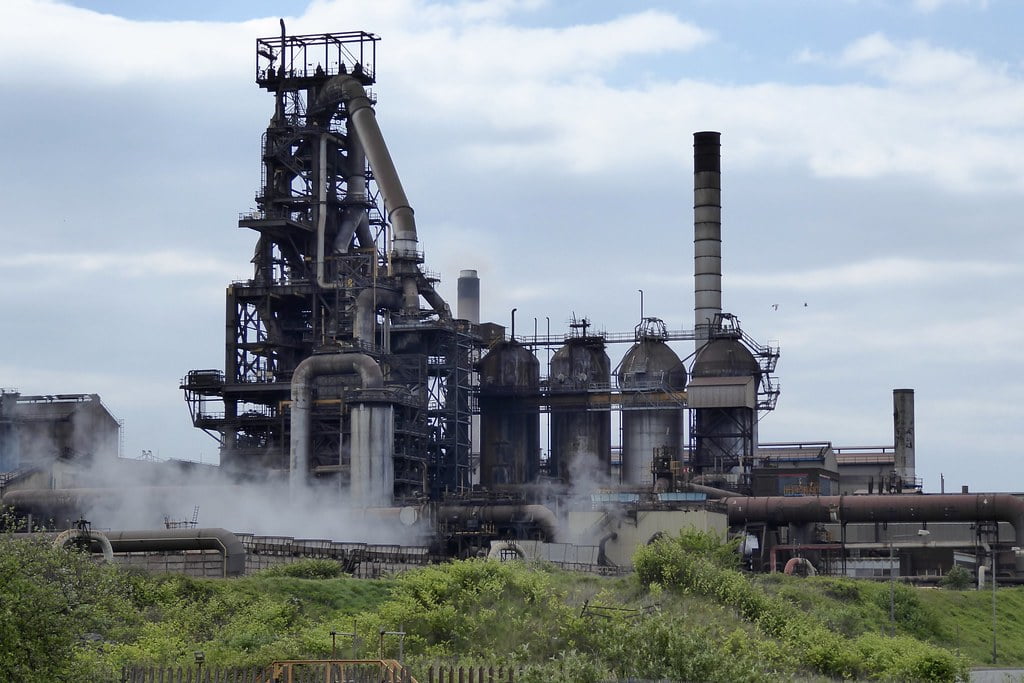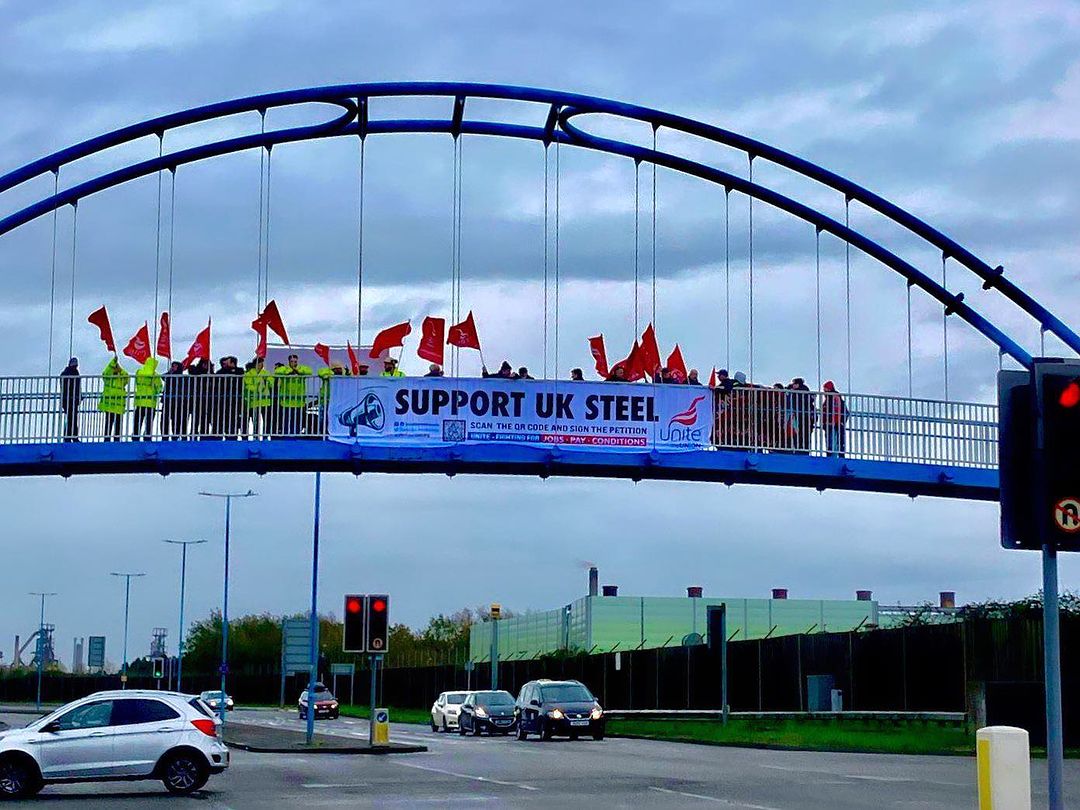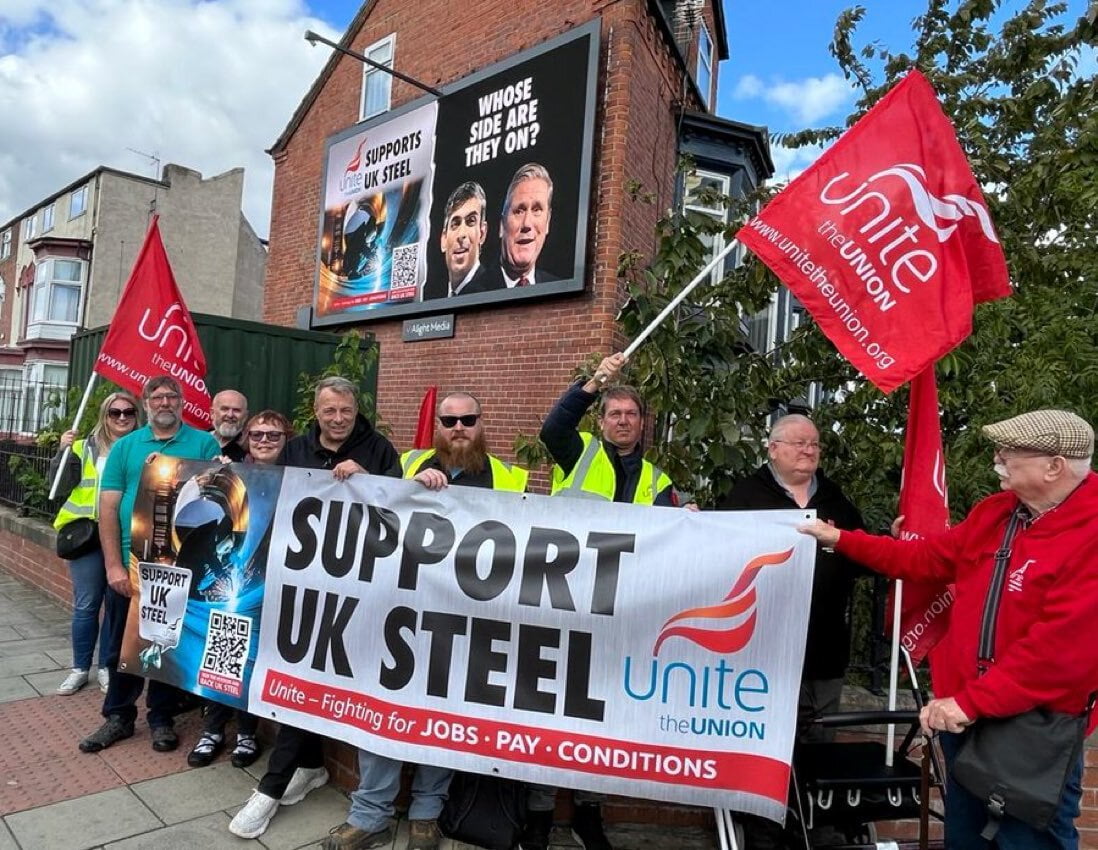Thousands of workers’ livelihoods in Port Talbot are currently in limbo, as employees at Indian mega-multinational Tata Steel await the owners’ decision regarding the future of their two blast furnaces at the South Wales steelworks.
Previously, the bosses had suggested that the two blast furnaces would be closed and replaced with a single modern arc furnace. This requires a smaller workforce to operate, putting up to 3,000 jobs at risk.
But earlier this month, the company delayed an expected announcement about plans for the site, and instead entered into talks with union representatives.
It’s not only Port Talbot that is on the edge of a jobs massacre. A similar situation is also unfolding in Scunthorpe, where British Steel – owned by China’s Jingye Group – has come to an agreement with the government to replace its blast furnaces with electric arc furnaces. This will put a further 2,000 jobs on the line.
‘Green’ steel?
In both cases, the government has been quick to offer money to the bosses. In Tata’s case, Tory ministers have vowed to subsidise the corporation to the tune of £500 million, from taxpayers’ money.
This funding has been secured on the promise that the new arc furnaces will be significantly ‘greener’. But these claims are tenuous for a few reasons.
For one, the electricity used to power these new furnaces will in all probability not come from clean sources, since the UK still gets a full third of its power production from natural gas. In terms of reducing carbon emissions, this is simply a case of kicking the can down the road.

Furthermore, arc furnaces, unlike blast furnaces, can be turned on and off quite easily. This will also supposedly help to cut down emissions. However, it’s far more profitable for the bosses to keep them working constantly – so that advantage flies out the window more or less immediately!
Finally, to add insult to injury, arc furnaces are unable to produce high quality ‘virgin’ steel. Instead, they are much better suited to recycling scrap. This means that British industries will now be forced to ship-in fresh ‘virgin’ steel that is no longer produced domestically, at a considerable environmental cost.
Taken together, then, arc furnaces’ green credentials become far more dubious that what the Tories and capitalists claim.
Market anarchy
Another common line from the bosses is that – given the general unprofitability of the UK steel industry – cheaper arc furnaces and associated job losses are in fact the only way to save at least some jobs in the sector in the long term.
But this is only the case in the cruel context of capitalism, where the profit motive and the anarchy of the market determine everything, and where workers are routinely thrown out onto the scrapheap as a result.
The dire situation facing the British steel industry highlights the need for immediate nationalisation, without compensation. To spend eye-watering sums on propping up the capitalists is nothing short of insulting.
Union fightback
The unions that represent steel workers – GMB, Community, and Unite – have been vocal in publicly opposing these job cuts. Unfortunately, they have been slow to mobilise any real fightback on the ground.
What is needed is an organised campaign to show the bosses that workers actually mean business. But such efforts have not been forthcoming from the unions.
In September, Unite held a small rally by a billboard in Port Talbot. This has been accompanied by banner drops at a few steel locations across the country. Around 400 workers led by Community have also marched through Port Talbot.
The unions are reportedly in discussions with Tata about safeguarding jobs. And they have threatened strike action, if their demands are not met. But as of yet, no formal ballots have been launched. And without these, the bosses could well conclude that strike warnings are just a bluff.
Workers’ control
On the ground in Port Talbot, there’s considerable anger in the local working-class community. But given the lack of information about what’s happening and when, there is also a certain despondency and disillusionment. Many cannot see any clear way out.
As the situation develops, things are bound to boil over one way or another. Workers shouldn’t be kept in the dark, or strung along while details are worked out behind closed doors.
If the bosses try to play this game, organised workers must demand to see the company’s books, and to be able to examine and amend any proposals. After all, it is workers themselves who know best how to run production – not the bosses and their army of consultants.
What’s needed is a bold, militant, coordinated campaign – including strike action – to defend these jobs. This would galvanise the local community into action, encourage workers in related industries to take a stand, and raise sights as to what is possible.
The demand should go up everywhere: nationalise these steelworks immediately – and with not a penny of compensation to the steel robbers!
In the long term, the only solution to the existential crisis in the steel industry is workers’ control and socialist planning. Only a genuine workers’ alternative can save this vital sector, and provide a real future to workers at Port Talbot, Scunthorpe, and across society.






